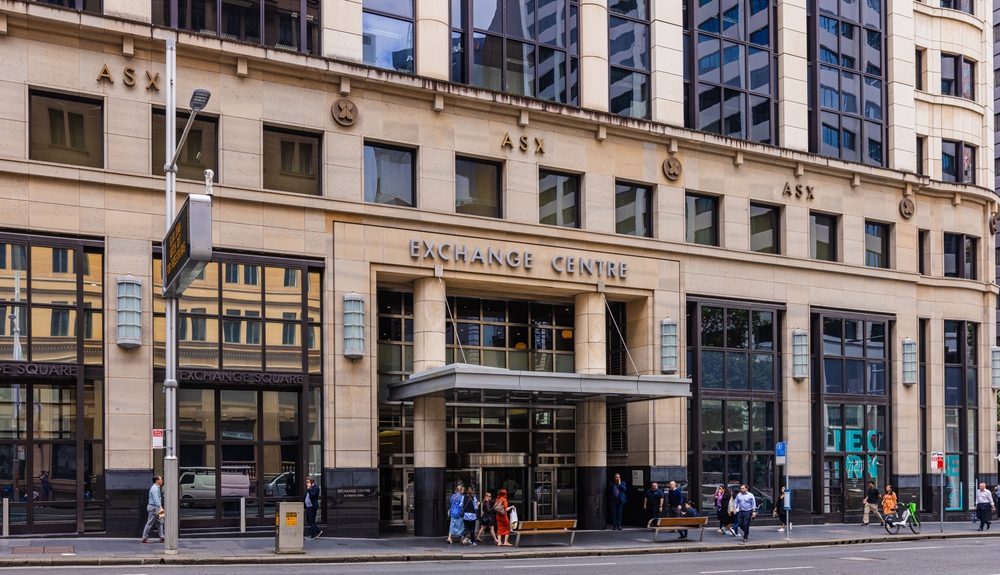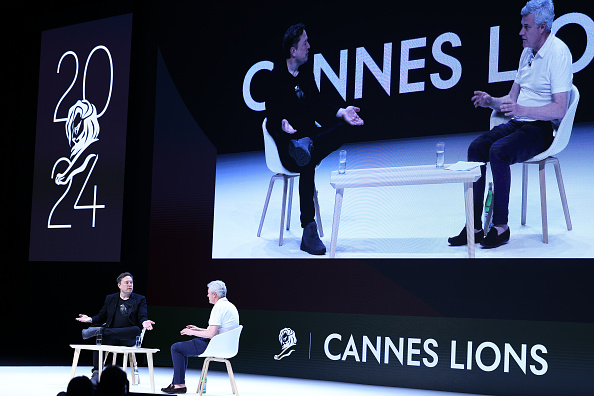Why Your Car Will Become Even More Like an iPhone
Doug Field, who left Apple for Ford in September, talks about automation and Detroit vs. Silicon Valley.
Car companies are trying to change a century-old business model: Make a car, sell it, and hope the customer comes back years later to buy another one.
Instead, they’re increasingly developing vehicles as digital devices, with the ability to remotely beam new services and features to the car that could make it easier and more fun to use—while notching extra revenue.
For traditional auto makers, the ability to update cars like an iPhone is in its infancy, though Tesla Inc. pioneered the practice. When Ford Motor Co. was looking for help with the digital transition, it plucked Doug Field, a former Tesla and Apple Inc. executive, to lead the charge in coming up with new digital features to foster an “always-on” connection to customers.
Mr. Field spent five years at Tesla, including as engineering chief, where he helped develop the Model 3. He did two stints at Apple, most recently starting in 2018 as vice president of special projects, before joining Ford in September.
He talked to The Future of Everything about what to expect from the car-ownership experience in the years ahead. Electrification and at least partial automation will be the norm, he predicts. For auto makers, the real differentiator will be offering an immersive experience, transforming the vehicle into a home-entertainment studio, gaming platform or conference room.
“The disruption in the auto industry, driven by software, autonomy and electrification, is going to be as big as anything that’s happened in the last century,” Mr. Field says.
What’s a feature or service that, five years from now, people won’t think twice about spending $20 or $30 a month to get?
Autonomy is the best example. You might choose different packages, a subscription-based service for how the vehicle operates autonomously. That’s already the way it works at Tesla. Once you have autonomy, you’ve unlocked the ability to do other things in the vehicle. Today, there are features that are fully hands off, but you’ve got to keep your eyes on the road. I’m talking hands off, eyes off [in the future]. And if you need to drive again, you have plenty of notice. It’s a very gentle experience to take over, and if you don’t, there’s a very gentle response to pull over into a safe situation. It’ll be a much smoother transition between humans and autonomy than this idea of a big switch that gets flipped from one to the other.
Will car owners be able to remotely choose features a la carte?
Content absolutely will be a la carte. You’ll see certain types of connectivity and features that might involve a situation where, for example, a car is shared by five people. You could have a circle of friends who decide they’re going to buy a car together. There’s a little scheduling app that basically keeps track of who’s going to use the vehicle when, making sure that it’s charged in between. So it’s not just the software inside the vehicle, but it’s also the services that free people from the burden of car ownership while maintaining their connection with the product.
In that scenario, you could customize things for each owner?
Through software, yes. Successful tech companies build hardware carefully, with not a huge amount of variation, and then put the variation in those products through software. A lot of the [auto] industry has grown up with massive variation. With technology differences, you have a fundamentally differentiated product. You don’t have to chop your lineup into all these tiny little slices. You’re going to have fewer models.
So people will choose their vehicles for different reasons in the future?
You don’t show off your phone anymore. And your identity doesn’t feel threatened when somebody else has an iPhone 13. My differentiation is in things like my Twitter page or my Instagram. It’s a very different way that people create their identity, whereas in the past, a car was a big part of that. I think that will largely fade away. There will always be niche products that are really unique and fun to drive and heavily styled, like Ferraris and Lamborghinis. Horses didn’t go away when cars came along, but they became recreational. Sports cars will be recreational.
Can the car companies compete with Big Tech on digital services and user interface?
Where the auto manufacturers can do things that are really special are vehicle-specific. The companies that do this really well will have products that people will walk out of their homes and sit in for the experience, even if they’re not going anywhere. A company that does this right could theoretically take the wheels off and plop it in your backyard and it’s a product, like an Airstream. It becomes fundamentally the best place you could have a conference call or listen to music or watch a movie.
We talk a lot about Detroit versus Silicon Valley. Where is that battle headed?
This story is being written right now, and the outcome is not yet clear. Technology transitions allow a whole bunch of new people to come in. These people come in with a blank slate, they get to shed all the baggage. The path for a [traditional auto maker] is to figure out how to leverage history and shed baggage, and that is very, very hard. There’s a race on. Are [auto makers] going to learn tech and customer experience faster than the startups are going to learn high-volume, high-quality, low-cost production and a bunch of other things people take for granted in cars? It’s a race.
Interview has been condensed and edited.
Reprinted by permission of WSJ. Magazine. Copyright 2021 Dow Jones & Company. Inc. All Rights Reserved Worldwide. Original date of publication: November 4, 2021.
 Copyright 2020, Dow Jones & Company, Inc. All Rights Reserved Worldwide. LEARN MORE
Copyright 2020, Dow Jones & Company, Inc. All Rights Reserved Worldwide. LEARN MORE
This stylish family home combines a classic palette and finishes with a flexible floorplan
Just 55 minutes from Sydney, make this your creative getaway located in the majestic Hawkesbury region.
As Paris makes its final preparations for the Olympic games, its residents are busy with their own—packing their suitcases, confirming their reservations, and getting out of town.
Worried about the hordes of crowds and overall chaos the Olympics could bring, Parisians are fleeing the city in droves and inundating resort cities around the country. Hotels and holiday rentals in some of France’s most popular vacation destinations—from the French Riviera in the south to the beaches of Normandy in the north—say they are expecting massive crowds this year in advance of the Olympics. The games will run from July 26-Aug. 1.
“It’s already a major holiday season for us, and beyond that, we have the Olympics,” says Stéphane Personeni, general manager of the Lily of the Valley hotel in Saint Tropez. “People began booking early this year.”
Personeni’s hotel typically has no issues filling its rooms each summer—by May of each year, the luxury hotel typically finds itself completely booked out for the months of July and August. But this year, the 53-room hotel began filling up for summer reservations in February.
“We told our regular guests that everything—hotels, apartments, villas—are going to be hard to find this summer,” Personeni says. His neighbours around Saint Tropez say they’re similarly booked up.
As of March, the online marketplace Gens de Confiance (“Trusted People”), saw a 50% increase in reservations from Parisians seeking vacation rentals outside the capital during the Olympics.
Already, August is a popular vacation time for the French. With a minimum of five weeks of vacation mandated by law, many decide to take the entire month off, renting out villas in beachside destinations for longer periods.
But beyond the typical August travel, the Olympics are having a real impact, says Bertille Marchal, a spokesperson for Gens de Confiance.
“We’ve seen nearly three times more reservations for the dates of the Olympics than the following two weeks,” Marchal says. “The increase is definitely linked to the Olympic Games.”

Getty Images
According to the site, the most sought-out vacation destinations are Morbihan and Loire-Atlantique, a seaside region in the northwest; le Var, a coastal area within the southeast of France along the Côte d’Azur; and the island of Corsica in the Mediterranean.
Meanwhile, the Olympics haven’t necessarily been a boon to foreign tourism in the country. Many tourists who might have otherwise come to France are avoiding it this year in favour of other European capitals. In Paris, demand for stays at high-end hotels has collapsed, with bookings down 50% in July compared to last year, according to UMIH Prestige, which represents hotels charging at least €800 ($865) a night for rooms.
Earlier this year, high-end restaurants and concierges said the Olympics might even be an opportunity to score a hard-get-seat at the city’s fine dining.
In the Occitanie region in southwest France, the overall number of reservations this summer hasn’t changed much from last year, says Vincent Gare, president of the regional tourism committee there.
“But looking further at the numbers, we do see an increase in the clientele coming from the Paris region,” Gare told Le Figaro, noting that the increase in reservations has fallen directly on the dates of the Olympic games.
Michel Barré, a retiree living in Paris’s Le Marais neighbourhood, is one of those opting for the beach rather than the opening ceremony. In January, he booked a stay in Normandy for two weeks.
“Even though it’s a major European capital, Paris is still a small city—it’s a massive effort to host all of these events,” Barré says. “The Olympics are going to be a mess.”
More than anything, he just wants some calm after an event-filled summer in Paris, which just before the Olympics experienced the drama of a snap election called by Macron.
“It’s been a hectic summer here,” he says.

AFP via Getty Images
Parisians—Barré included—feel that the city, by over-catering to its tourists, is driving out many residents.
Parts of the Seine—usually one of the most popular summertime hangout spots —have been closed off for weeks as the city installs bleachers and Olympics signage. In certain neighbourhoods, residents will need to scan a QR code with police to access their own apartments. And from the Olympics to Sept. 8, Paris is nearly doubling the price of transit tickets from €2.15 to €4 per ride.
The city’s clear willingness to capitalise on its tourists has motivated some residents to do the same. In March, the number of active Airbnb listings in Paris reached an all-time high as hosts rushed to list their apartments. Listings grew 40% from the same time last year, according to the company.
With their regular clients taking off, Parisian restaurants and merchants are complaining that business is down.
“Are there any Parisians left in Paris?” Alaine Fontaine, president of the restaurant industry association, told the radio station Franceinfo on Sunday. “For the last three weeks, there haven’t been any here.”
Still, for all the talk of those leaving, there are plenty who have decided to stick around.
Jay Swanson, an American expat and YouTuber, can’t imagine leaving during the Olympics—he secured his tickets to see ping pong and volleyball last year. He’s also less concerned about the crowds and road closures than others, having just put together a series of videos explaining how to navigate Paris during the games.
“It’s been 100 years since the Games came to Paris; when else will we get a chance to host the world like this?” Swanson says. “So many Parisians are leaving and tourism is down, so not only will it be quiet but the only people left will be here for a party.”
This stylish family home combines a classic palette and finishes with a flexible floorplan
Just 55 minutes from Sydney, make this your creative getaway located in the majestic Hawkesbury region.






















